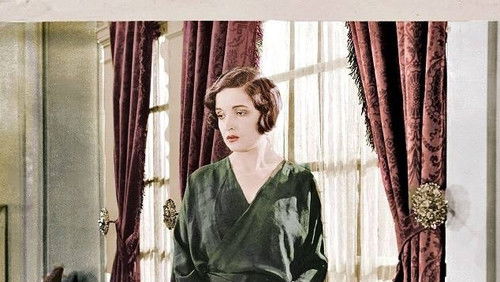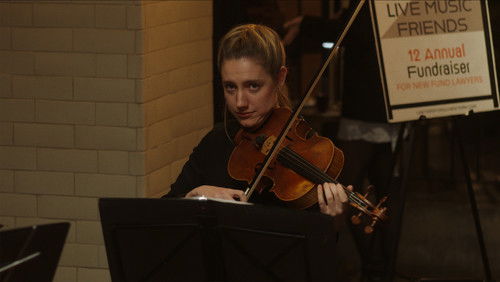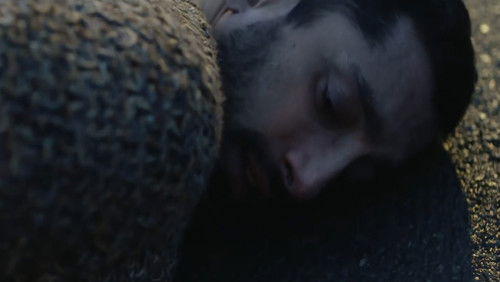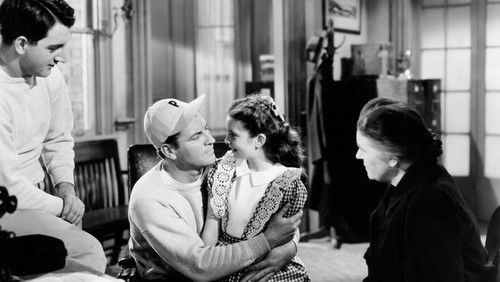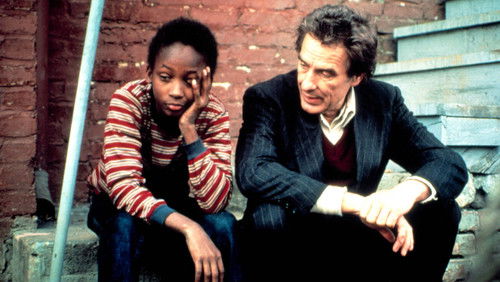Die Bibel: Apokalypse (TV Movie 2000)
46KDie Bibel: Apokalypse: Directed by Raffaele Mertes. With Richard Harris, Vittoria Belvedere, Benjamin Sadler, Christian Kohlund. It is 90 A.D., and the Roman Empire is being run by the Emperor Domitian, who has declared himself to be God, and ruler over heaven and Earth. The Christians, who do not recognize his divinity, are a thorn in his side, and he is having them cruelly persecuted. The small village in Asia Minor, to which the aged apostle John has withdrawn, is also attacked by Roman soldiers. As if by a miracle, John is the only person to escape the slaughter, and he receives divine orders to write down the visions he will have, and communicate them to the Christian communities in the Roman provinces of Asia. The voice tells him that they should discover what is and what will happen thereafter. Among the Christians of Asia Minor, who believe that John is dead, everyone is deeply worried about being persecuted. Gaius, the community elder in Smyrna, is concerned that only a few believers still dare come to the ritual supper. Under these circumstances, Christianity can no longer exist. But at this point, the young Irene appears at the secret meeting. She is convinced that John, who could give the Christians back their courage, is still alive, because a certain Theophilus, who is being held captive by the Romans on the island of Patmos, is in contact with him, and had a letter sent to her. In it, John describes his vision of Heaven: And behold, a throne was set in Heaven, and one sat on the throne, and out of the throne proceeded lightnings and thunderings and voices. And there were seven lamps of fire burning before the throne, and in the midst of the throne, and round about the throne, were four beasts full of eyes before and behind. And the first beast was like a lion, and the second beast like a calf, and the third beast had a face as a man, and the fourth beast was like a flying eagle. And I saw in the right hand of Him that sat on the throne a book that was sealed with seven seals. Neither Gaius, nor the other adult believers, understand what John means by this. Only a little child among them, also named John, grasps the sense of it: John realizes that the throne belongs to God, and sees the seven lamps of fire as the seven Christian communities of Asia Minor, together with the four elements and the book of seals with the mystery of faith that brings salvation. Yet the letter’s mysterious origins make Gaius skeptical. He is only prepared to believe in the integrity of this vision, if John really is still alive. Old Theophilus, who in reality is John himself, has been sent to the prison island of Patmos, ruled by the corrupt Roman official Corvus, as a scribe, while the other prisoners have to do hard labor in the mines. Many of them hate Theophilus (John) because of the special treatment he is receiving, but above all, because he is a Christian. Nevertheless, he does succeed in converting some of his fellow prisoners to Christianity, such as the young scribe Demetrius, who is planning to escape along a secret tunnel. When the shaken John tells his companions about the crucifixion of the Savior, they realize that he was there at the time, and is actually John. He falls into a trance and experiences a new vision of Heaven: And one of the elders said unto me, Weep not: behold, the Lion of the tribe of Juda, the Root of David, hath prevailed to open the book, and to loose the seven seals thereof. And I beheld, and, lo, in the midst of the throne and of the four beasts stood a Lamb as it had been slain, having seven horns and seven eyes. And he came and took the book. And I saw, and behold a white horse: and he that sat on him had a bow; and a crown was given unto him: and he went forth conquering, and to conquer. Meanwhile, in Smyrna, the young Irene has taken her leave of Valerius, whom she loves with a pure heart. She does not realize that he is not a Christian at all, but a spy working for the notoriously brutal Roman general Rufus, who has been ordered by Domitian to persecute Christians in Asia Minor. Valerius is a Roman soldier, born as a slave, he has his foster-father Rufus to thank for everything he has now become. He therefore has to obey when Rufus sends him to Patmos. Disguised as a prisoner, Valerius is told to find out whether John is still alive, because there are incessant rumors that he is, and they are leading to unwelcome solidarity among the Christians. Meanwhile Irene, with the help of her brother Jonicus, who visits Patmos regularly as a trader, gains access to the prison camp there. She recognizes Valerius from a distance and gets very worried about him. She embarked on all these dangers for the sake of John. However, her greatest desire is to see the last living Apostle, and to tell everyone about him. John trusts her, and confides in her under the seal of secrecy. She receives his visions in written form and promises to circulate the text among the Christians. Meanwhile on Patmos, Valerius tries to gain the trust of the Christian prisoners by defending the old Sostenes against the guards and suffering severe punishment as a result. Bound to a cross, he is left in the burning sunshine, but John is the only one who dares give him any water. And to Valerius’ great surprise, he seems to know all about him and Rufus. In the hell of the prison camp, where violence and resentment reign, John often wonders about his mission: why has the Lord trapped him on this island, instead of sending him out into the world to spread the glad tidings? Then, surrounded by his companions, he falls into a trance, and again he sees himself in Heaven, with the Lamb on the throne. It is being threatened by a heavily armed knight on a red horse who is bringing hatred and war to humanity. Then a black horse appears whose rider is holding a pair of scales: he is the bringer of injustice and selfishness. Meanwhile, Rufus has ordered the island’s governor Corvus to come and see him to tell him to show more severity, especially toward the Christians. Corvus is worried about losing his lucrative job, and so he tells his guards to be even more watchful than before. As a result, he notices that Irene has slipped into the camp again with Jonicus, to collect John’s latest message. However, Jonicus cleverly manages to talk the guards out of searching either himself or his sister. John’s visions become increasingly frequent and exhaust his strength. Nevertheless, Demetrius is still hoping to be able to get him off the island. The tunnel is ready, and the escape is planned for that evening. But when John supports the maltreated Sostenes, he incurs the wrath of the governor. He is imprisoned and the escape plans are scrapped. In his prison cell, John has a new vision: the Lamb breaks the fourth seal and again a horse appears, the pale horse that brings death into the world, plagues and famines, accidents and earthquakes. Only the love of God can defeat it. That night, numerous prisoners want to use the tunnel to escape, but it is discovered by the guards, and the fugitives are slaughtered. For Demetrius, all hope of rescue has now vanished. But John consoles him, telling him that it is God’s will that they remain here on the island. Blessed are the poor, for theirs is the kingdom of Heaven, Jesus announces to him in the vision. And then he sees a huge number of people in Heaven: They called in a loud voice: Salvation cometh from our God. The Christians of Asia Minor, all in very great danger, cling to this belief, for the Romans are murdering them all, women and men, young and old alike. Irene and Ionicus put their lives into very great danger and, with the help of a guard, manage to free John and the other Christians from the camp, the Roman spy Valerius among them. A ship is waiting at the harbor. But John is too old and weak to shake off the guards pursuing them. He takes his leave of his companions and hides in a cave together with Valerius, who is transformed by the old man’s influence, and becomes his helper. In the cave, John goes into a prophetic trance and has his last vision: And when the Lamb had opened the seventh seal, there was silence in heaven. And I saw the seven angels which stood before God, and to them were given seven trumpets. When the angels blew one after the other into the trumpets, hail, fire, and locusts destroyed the Earth, the sea turned to blood, darkness covered the Earth and the Day of Judgment arrived. And I saw a new heaven and a new Earth, and there shall be no more death, neither sorrow, nor crying, neither shall there be any more pain. Meanwhile Irene, Jonicus and Demetrius are arrested by Corvus and his men, and Valerius and John are found in their cave, their lives are forfeited. But at this point, Rufus arrives, and not only frees his foster son Valerius, but also the other captive Christians. It turns out that the Emperor Domitian is dead, and his successor has announced an amnesty. The persecution of the Christians is over. John, his companions, and the Christian communities all thank God for their salvation. Freed from his duty toward his foster-father, Valerius is finally free to embrace his beloved Irene.
“While banished to the island of Patmos, u0026quot;St. Johnu0026quot; (played by Richard Harris) receives visions from the Lord which results in his writing the u0026quot;Book of Revelationu0026quot;. However, this is not a movie about u0026quot;the Apocalypseu0026quot;. Rather, this film is more about his life on Patmos and his visions than anything else. I say this for several reasons. First, the event called u0026quot;the Apocalypseu0026quot; isnu0026#39;t constrained to just the u0026quot;Book of Revelationu0026quot;. The fact is that much of what we know about this subject also comes from the u0026quot;Book of Danielu0026quot; and the u0026quot;Gospel of Matthewu0026quot; along with various passages from other books in the Bible as well. Because of this, there were many passages about the Apocalypse which were left out of the film. Along with that, those passages that were included werenu0026#39;t explained well at all. Further, like so many other Biblical movies, there are some non-Biblical elements thrown in for dramatic effect. In this particular case it involves a beautiful Christian woman named u0026quot;Ireneu0026quot; (Vittoria Belvedere) and a Roman spy by the name of u0026quot;Valeriusu0026quot; (Benjamin Sadler). So basically, if youu0026#39;re looking for a film about the Apocalypse then it might be better to look elsewhere. However, thanks to a very fine performance by Richard Harris, this movie is still somewhat enjoyable all the same and can safely be recommended to anybody of any faith. That said, I rate it as slightly above average.”



